https://www.sohu.com/a/415364133_104952?spm=smpc.home.health-pics.1.1598678522391tsA20TU
日本首相安倍晋三因溃疡性大肠炎恶化辞职,这种病能治愈吗?
2020-08-28 17:12
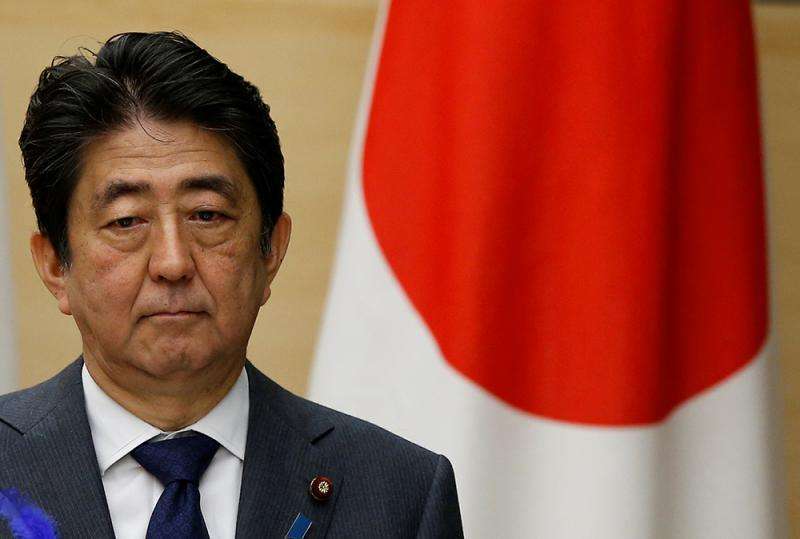
出品 | 搜狐健康
作者 | 周亦川
编辑 | 袁月
据日本NHK网站报道,8月28日下午,日本首相安倍晋三在官邸召开记者会,宣布自己辞去首相一职,理由是“发现旧疾溃疡性结肠炎复发,为避免个人健康状况影响执政,决定辞去日本首相的职务。”
安倍晋三于本月17日在东京新宿区的庆应大学医院停留了大约7个半小时,接受身体检查,并于24日再次来到庆应大学医院,在那里停留了大约3个半小时,详细询问了17日的检查结果,并且进行了追加检查。
安倍于14年前的平成18年就任首相,但由于慢性病溃疡性大肠炎恶化等原因,在任期间366天辞职。因此,这次在慢性病恶化等健康不安的传言中,党内也发出劝告,建议他充分休养。
溃疡性大肠炎是什么病,能治好吗?
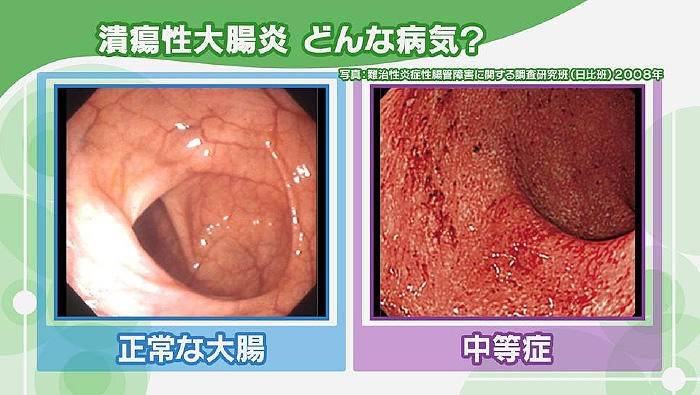
日本东邦大学医疗中心佐仓医院消化内科教授铃木康夫在NHK网站发文介绍,溃疡性大肠炎是一种大肠黏膜的炎症,可导致大肠塌陷、严重腹泻、便血等等症状。随着症状进一步加重,大肠黏膜溃疡,发生严重的腹痛和发热,可导致更严重的事故。
该病发病年龄很广,20至40岁是发病高峰。由于是一种免疫系统异常导致的炎症,它难以治愈,也成为了一种国家指定的疑难杂症。
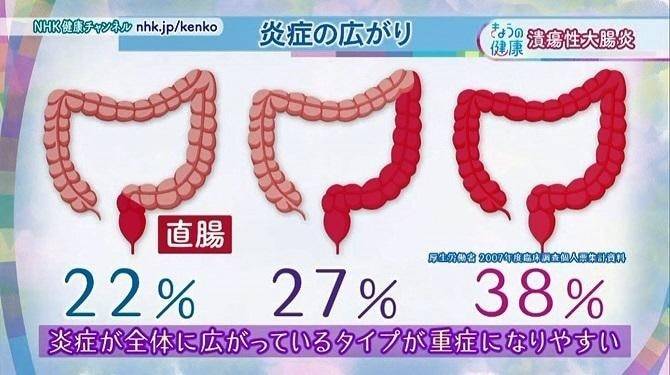
大肠内窥镜检查可以诊断炎症扩散情况,可分为以下三种类型:
左:炎症仅局限于直肠
中:只在大肠左侧发现炎症
右:大肠整体发现炎症
炎症仅限于直肠型的发病率为22%,仅在大肠左侧发生炎症型的发病率为27%,炎症扩散到大肠整体类型的发病率为38%。炎症扩散到整个大肠的人容易发展为重症。

溃疡性大肠炎患者并非一直出现症状。疾病活动期大肠发生炎症反应,之后到了缓解期各类症状缓解,两种状态交替重复。90%的患者可以通过药物抑制症状,与疾病长期共处。他们可以继续工作和学业,也可以怀孕和生孩子。

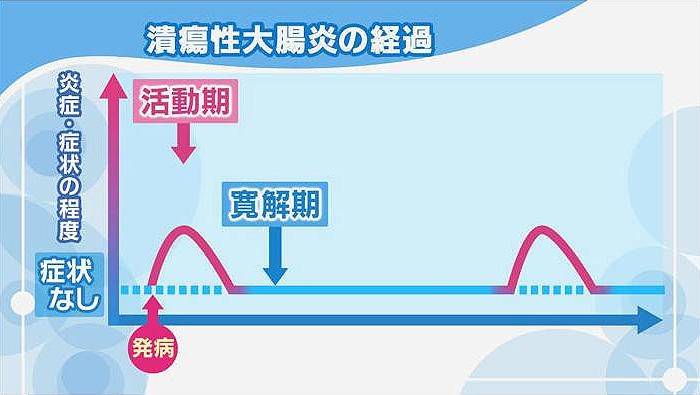
因此,我们治疗的目的就是让疾病活动期症状减轻,让缓解期延长。
溃疡性大肠炎怎么治?
1.药物治疗
溃疡性大肠炎以药物治疗为主。最常使用的药物是抑制肠炎症状的5-氨基水杨酸,症状缓解后为了继续维持缓解期,必须每天坚持用药。需要警惕的是,大肠持续慢性炎症是大肠癌的高危风险因素,长期发病10年左右的患者,癌症的发生率会达到5%—10%。因此,我们需要通过药物尽可能长时间维持疾病缓解期。
5-氨基水杨酸效果不佳,我们需要考虑使用皮质类固醇(激素)治疗,但激素会存在依赖性。因此,我们需要在使用激素和免疫调节剂的同时,缓慢减低激素用量。
激素治疗无效,我们将使用抗TNF-α生物制剂,钙调磷酸酶抑制剂等进行更强效的免疫抑制。
2. 去除血球成分疗法
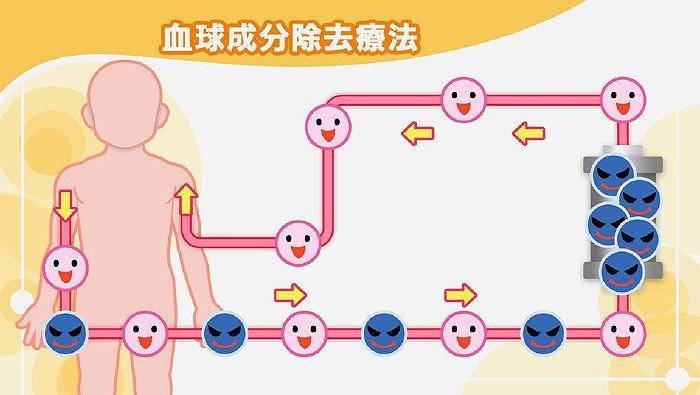
这是一种日本开发的疗法。医生从患者手臂中抽出血液,使用专门的装置去除引起炎症的白细胞,再将血液返还体内。这是一项可以在门诊操作的疗法,一次治疗时间约1个小时,患者需根据症状程度每周做一到两次治疗,最多做10次之后可进入病情缓解期,大约40%—50%的患者可以通过这种疗法顺利缓解。虽然需要长期去医院治疗,但几乎没有副作用。
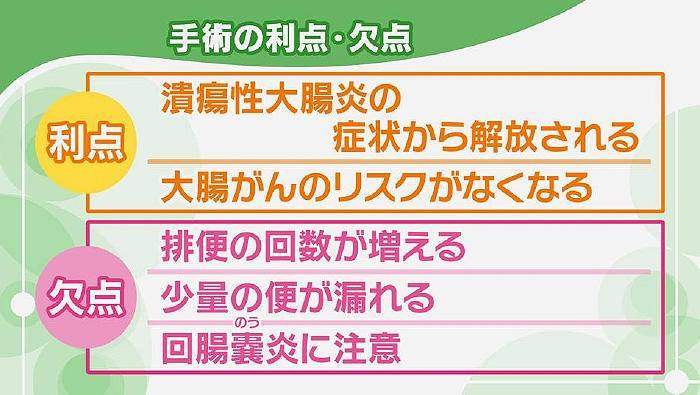
3.手术治疗
溃疡性大肠炎中重度患者,如果药物治疗不能得到改善,可能需要做大肠全部切除手术。手术的优点是,患者可以从溃疡性大肠炎的症状中解放出来,患大肠癌的风险也会减少。缺点是手术可导致排便次数增加,随着小肠逐渐替代大肠的排便作用,排便次数可从每日10次逐渐减为一年后的每日5、6次。有些人出现大便泄漏,因此需要戴上尿垫。
此外,由于小肠与肛门相连可能发生炎症,也可能导致回肠囊炎。
参考资料:
1.NHK
完治の難しい潰瘍性大腸炎の治療法とは?発病年齢や食事法も解説
https://www.nhk.or.jp/kenko/atc_25.html
Japanese Prime Minister Shinzo Abe resigned because of the deterioration of ulcerative colitis. Can this disease be cured?
2020-08-28 17:12
Sohu Health
Author Zhou Yichuan
Editor yuan Yue
Japanese Prime Minister Shinzo Abe held a press conference at his official residence on the afternoon of August 28, announcing his resignation as prime minister on the grounds that "he found a recurrence of ulcerative colitis and decided to resign as prime minister in order to avoid the impact of personal health on the government," the NHK website reported
Shinzo Abe stayed in Keio University Hospital in Shinjuku District of Tokyo for about 7.5 hours on January 17 for physical examination. On the 24th, he came to Keio University hospital again, where he stayed for about 3.5 hours. He inquired about the examination results on the 17th and conducted additional examinations.
Abe became prime minister 14 years ago in Heisei 18 years ago, but resigned 366 days during his term of office because of the deterioration of chronic ulcerative colitis and other reasons. Therefore, in the rumor of the deterioration of chronic diseases and other health worries, the party also issued advice to him to take a full rest.
What disease is ulcerative colitis, can you cure?
Professor Yasuo Suzuki, Professor of gastroenterology at Sakura Hospital of Tohoku University Medical Center in Japan, wrote on NHK website that ulcerative colitis is an inflammation of large intestine mucosa, which can lead to large intestine collapse, severe diarrhea, bloody stool and other symptoms. With further aggravation of symptoms, ulceration of large intestine mucosa, severe abdominal pain and fever may lead to more serious accidents.
The onset age of the disease is very wide, and the peak is between 20 and 40 years old. Because it is a kind of inflammation caused by abnormal immune system, it is difficult to cure, and has become a kind of difficult disease designated by the state.
Colorectal endoscopy can diagnose the spread of inflammation, which can be divided into the following three types:
Left: inflammation is confined to the rectum
Middle: inflammation was found only on the left side of the large intestine
Right: inflammation is found in the large intestine as a whole
The incidence rate of incidence of inflammation was only 22% in rectum type, incidence rate of inflammation only on the left side of the large intestine was 27%, and the incidence rate of inflammation spread to the whole colon type was 38%. People with inflammation spreading throughout the large intestine are more likely to develop into severe cases.
Patients with ulcerative colitis are not always symptomatic. Inflammatory reaction occurred in the large intestine in the active stage of the disease, and then to the remission stage, all kinds of symptoms were relieved, and the two states were repeated alternately. 90% of patients can inhibit symptoms through drugs and coexist with the disease for a long time. They can continue to work and study, they can get pregnant and have children.
Therefore, the purpose of our treatment is to reduce the symptoms of active disease and prolong the remission period.
How is ulcerative colitis treated?
1. Drug therapy
Ulcerative colitis is mainly treated with drugs. The most commonly used drug is 5-aminosalicylic acid, which inhibits the symptoms of enteritis. In order to maintain the remission period after the symptoms are relieved, it is necessary to adhere to the medication every day. It should be noted that chronic inflammation of the large intestine is a high-risk factor for colorectal cancer. The incidence of cancer will reach 5% - 10% in patients with long-term disease for about 10 years. Therefore, we need to maintain remission through drugs as long as possible.
5-aminosalicylic acid is not effective, we need to consider the use of corticosteroids (hormone) treatment, but hormone dependence. Therefore, we need to use hormones and immunomodulators at the same time, slowly reduce the use of hormones.
Hormone therapy is ineffective, we will use anti TNF - α biological agents, calcineurin inhibitors and so on for more effective immunosuppression.
2. Blood cell removal therapy
This is a treatment developed in Japan. The patient's blood is then removed from the patient's arm using a special device to remove the white blood cells. This is a treatment that can be operated in the outpatient department. One treatment time is about 1 hour. Patients need to do treatment once or twice a week according to the degree of symptoms. After doing up to 10 times, they can enter the remission period. About 40% - 50% of the patients can get remission through this treatment. Although long-term hospital treatment is needed, there are few side effects.
3. Surgical treatment
Patients with moderate to severe ulcerative colitis may need to undergo total resection of the large intestine if drug treatment can not be improved. The advantage of surgery is that patients can be liberated from the symptoms of ulcerative colitis, and the risk of colorectal cancer will be reduced. The disadvantage is that the operation can increase the frequency of defecation. With the small intestine gradually replacing the bowel function of the large intestine, the frequency of defecation can be gradually reduced from 10 times a day to 5 or 6 times a day after one year. Some people have a stool leak, so they need to wear a urine pad.
In addition, because the small intestine is connected to the anus, inflammation may occur, and ileal sac inflammation may also occur.
reference material:
1.NHK
Complete treatment of ulcerative colitis? An explanation of the food affairs in the year of febrile diseases
https://www.nhk.or.jp/kenko/atc_ 25.html
日本首相安倍晋三因溃疡性大肠炎恶化辞职,这种病能治愈吗?
2020-08-28 17:12

出品 | 搜狐健康
作者 | 周亦川
编辑 | 袁月
据日本NHK网站报道,8月28日下午,日本首相安倍晋三在官邸召开记者会,宣布自己辞去首相一职,理由是“发现旧疾溃疡性结肠炎复发,为避免个人健康状况影响执政,决定辞去日本首相的职务。”
安倍晋三于本月17日在东京新宿区的庆应大学医院停留了大约7个半小时,接受身体检查,并于24日再次来到庆应大学医院,在那里停留了大约3个半小时,详细询问了17日的检查结果,并且进行了追加检查。
安倍于14年前的平成18年就任首相,但由于慢性病溃疡性大肠炎恶化等原因,在任期间366天辞职。因此,这次在慢性病恶化等健康不安的传言中,党内也发出劝告,建议他充分休养。
溃疡性大肠炎是什么病,能治好吗?

日本东邦大学医疗中心佐仓医院消化内科教授铃木康夫在NHK网站发文介绍,溃疡性大肠炎是一种大肠黏膜的炎症,可导致大肠塌陷、严重腹泻、便血等等症状。随着症状进一步加重,大肠黏膜溃疡,发生严重的腹痛和发热,可导致更严重的事故。
该病发病年龄很广,20至40岁是发病高峰。由于是一种免疫系统异常导致的炎症,它难以治愈,也成为了一种国家指定的疑难杂症。

大肠内窥镜检查可以诊断炎症扩散情况,可分为以下三种类型:
左:炎症仅局限于直肠
中:只在大肠左侧发现炎症
右:大肠整体发现炎症
炎症仅限于直肠型的发病率为22%,仅在大肠左侧发生炎症型的发病率为27%,炎症扩散到大肠整体类型的发病率为38%。炎症扩散到整个大肠的人容易发展为重症。

溃疡性大肠炎患者并非一直出现症状。疾病活动期大肠发生炎症反应,之后到了缓解期各类症状缓解,两种状态交替重复。90%的患者可以通过药物抑制症状,与疾病长期共处。他们可以继续工作和学业,也可以怀孕和生孩子。


因此,我们治疗的目的就是让疾病活动期症状减轻,让缓解期延长。
溃疡性大肠炎怎么治?
1.药物治疗
溃疡性大肠炎以药物治疗为主。最常使用的药物是抑制肠炎症状的5-氨基水杨酸,症状缓解后为了继续维持缓解期,必须每天坚持用药。需要警惕的是,大肠持续慢性炎症是大肠癌的高危风险因素,长期发病10年左右的患者,癌症的发生率会达到5%—10%。因此,我们需要通过药物尽可能长时间维持疾病缓解期。
5-氨基水杨酸效果不佳,我们需要考虑使用皮质类固醇(激素)治疗,但激素会存在依赖性。因此,我们需要在使用激素和免疫调节剂的同时,缓慢减低激素用量。
激素治疗无效,我们将使用抗TNF-α生物制剂,钙调磷酸酶抑制剂等进行更强效的免疫抑制。
2. 去除血球成分疗法

这是一种日本开发的疗法。医生从患者手臂中抽出血液,使用专门的装置去除引起炎症的白细胞,再将血液返还体内。这是一项可以在门诊操作的疗法,一次治疗时间约1个小时,患者需根据症状程度每周做一到两次治疗,最多做10次之后可进入病情缓解期,大约40%—50%的患者可以通过这种疗法顺利缓解。虽然需要长期去医院治疗,但几乎没有副作用。

3.手术治疗
溃疡性大肠炎中重度患者,如果药物治疗不能得到改善,可能需要做大肠全部切除手术。手术的优点是,患者可以从溃疡性大肠炎的症状中解放出来,患大肠癌的风险也会减少。缺点是手术可导致排便次数增加,随着小肠逐渐替代大肠的排便作用,排便次数可从每日10次逐渐减为一年后的每日5、6次。有些人出现大便泄漏,因此需要戴上尿垫。
此外,由于小肠与肛门相连可能发生炎症,也可能导致回肠囊炎。
参考资料:
1.NHK
完治の難しい潰瘍性大腸炎の治療法とは?発病年齢や食事法も解説
https://www.nhk.or.jp/kenko/atc_25.html
Japanese Prime Minister Shinzo Abe resigned because of the deterioration of ulcerative colitis. Can this disease be cured?
2020-08-28 17:12
Sohu Health
Author Zhou Yichuan
Editor yuan Yue
Japanese Prime Minister Shinzo Abe held a press conference at his official residence on the afternoon of August 28, announcing his resignation as prime minister on the grounds that "he found a recurrence of ulcerative colitis and decided to resign as prime minister in order to avoid the impact of personal health on the government," the NHK website reported
Shinzo Abe stayed in Keio University Hospital in Shinjuku District of Tokyo for about 7.5 hours on January 17 for physical examination. On the 24th, he came to Keio University hospital again, where he stayed for about 3.5 hours. He inquired about the examination results on the 17th and conducted additional examinations.
Abe became prime minister 14 years ago in Heisei 18 years ago, but resigned 366 days during his term of office because of the deterioration of chronic ulcerative colitis and other reasons. Therefore, in the rumor of the deterioration of chronic diseases and other health worries, the party also issued advice to him to take a full rest.
What disease is ulcerative colitis, can you cure?
Professor Yasuo Suzuki, Professor of gastroenterology at Sakura Hospital of Tohoku University Medical Center in Japan, wrote on NHK website that ulcerative colitis is an inflammation of large intestine mucosa, which can lead to large intestine collapse, severe diarrhea, bloody stool and other symptoms. With further aggravation of symptoms, ulceration of large intestine mucosa, severe abdominal pain and fever may lead to more serious accidents.
The onset age of the disease is very wide, and the peak is between 20 and 40 years old. Because it is a kind of inflammation caused by abnormal immune system, it is difficult to cure, and has become a kind of difficult disease designated by the state.
Colorectal endoscopy can diagnose the spread of inflammation, which can be divided into the following three types:
Left: inflammation is confined to the rectum
Middle: inflammation was found only on the left side of the large intestine
Right: inflammation is found in the large intestine as a whole
The incidence rate of incidence of inflammation was only 22% in rectum type, incidence rate of inflammation only on the left side of the large intestine was 27%, and the incidence rate of inflammation spread to the whole colon type was 38%. People with inflammation spreading throughout the large intestine are more likely to develop into severe cases.
Patients with ulcerative colitis are not always symptomatic. Inflammatory reaction occurred in the large intestine in the active stage of the disease, and then to the remission stage, all kinds of symptoms were relieved, and the two states were repeated alternately. 90% of patients can inhibit symptoms through drugs and coexist with the disease for a long time. They can continue to work and study, they can get pregnant and have children.
Therefore, the purpose of our treatment is to reduce the symptoms of active disease and prolong the remission period.
How is ulcerative colitis treated?
1. Drug therapy
Ulcerative colitis is mainly treated with drugs. The most commonly used drug is 5-aminosalicylic acid, which inhibits the symptoms of enteritis. In order to maintain the remission period after the symptoms are relieved, it is necessary to adhere to the medication every day. It should be noted that chronic inflammation of the large intestine is a high-risk factor for colorectal cancer. The incidence of cancer will reach 5% - 10% in patients with long-term disease for about 10 years. Therefore, we need to maintain remission through drugs as long as possible.
5-aminosalicylic acid is not effective, we need to consider the use of corticosteroids (hormone) treatment, but hormone dependence. Therefore, we need to use hormones and immunomodulators at the same time, slowly reduce the use of hormones.
Hormone therapy is ineffective, we will use anti TNF - α biological agents, calcineurin inhibitors and so on for more effective immunosuppression.
2. Blood cell removal therapy
This is a treatment developed in Japan. The patient's blood is then removed from the patient's arm using a special device to remove the white blood cells. This is a treatment that can be operated in the outpatient department. One treatment time is about 1 hour. Patients need to do treatment once or twice a week according to the degree of symptoms. After doing up to 10 times, they can enter the remission period. About 40% - 50% of the patients can get remission through this treatment. Although long-term hospital treatment is needed, there are few side effects.
3. Surgical treatment
Patients with moderate to severe ulcerative colitis may need to undergo total resection of the large intestine if drug treatment can not be improved. The advantage of surgery is that patients can be liberated from the symptoms of ulcerative colitis, and the risk of colorectal cancer will be reduced. The disadvantage is that the operation can increase the frequency of defecation. With the small intestine gradually replacing the bowel function of the large intestine, the frequency of defecation can be gradually reduced from 10 times a day to 5 or 6 times a day after one year. Some people have a stool leak, so they need to wear a urine pad.
In addition, because the small intestine is connected to the anus, inflammation may occur, and ileal sac inflammation may also occur.
reference material:
1.NHK
Complete treatment of ulcerative colitis? An explanation of the food affairs in the year of febrile diseases
https://www.nhk.or.jp/kenko/atc_ 25.html
